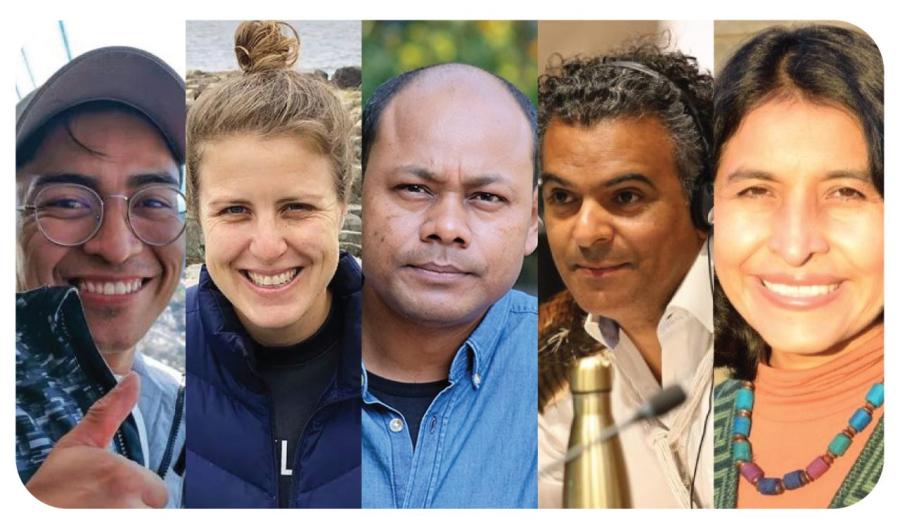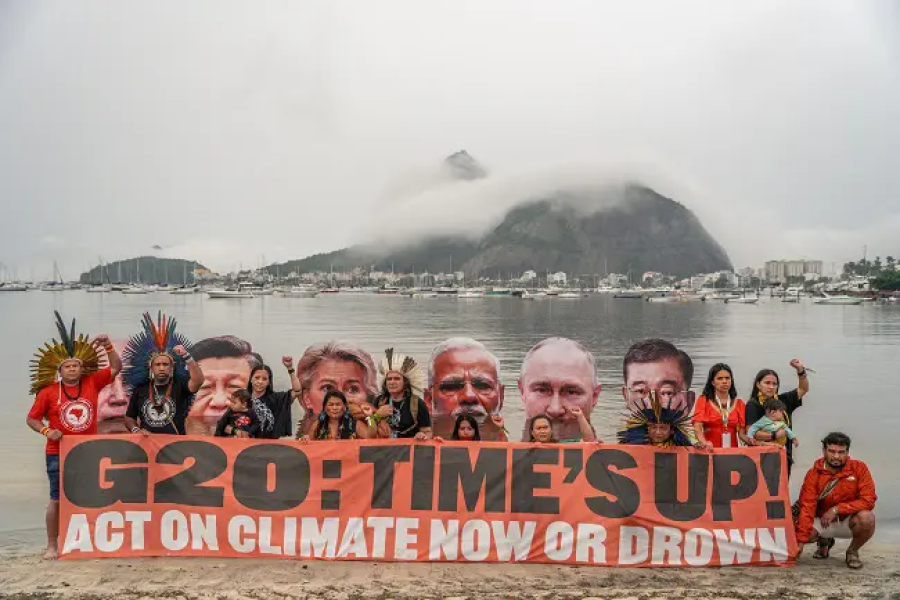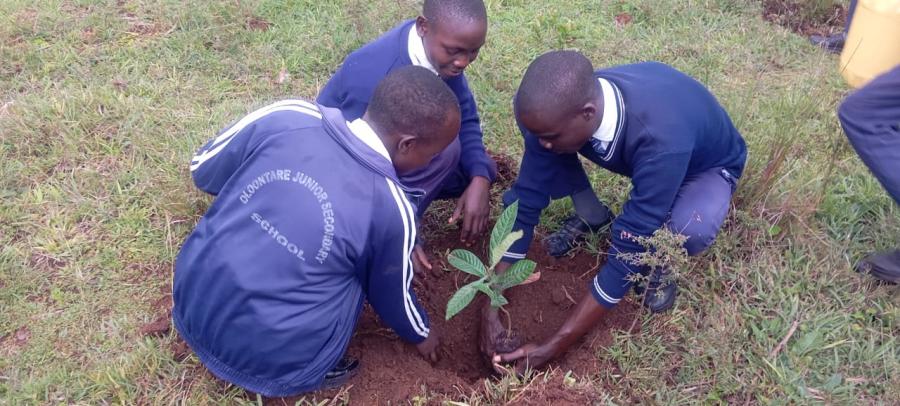The winds of changes are blowing across Sub-Saharan Africa, a diverse region of 47 countries stretching from the rolling savannas south of the Sahara desert to the coastal mountains and valleys of the Cape. In hundreds of cities and towns, prodemocracy demonstrators have taken to the streets. In over a dozen countries, opposition to one-party rule has led to promises of open elections, and major reforms aim at improving relations between governments and their citizens.
Despite these changes, over 70 percent of the people in Sub-Saharan Africa still lack basic civil liberties and human rights. Moreover, the region faces what amounts to a humanitarian crisis as a combination of drought, civil conflict, and economic decline threaten nearly 60 million of the region's 550 million people. Millions more, possibly a quarter of the total population, are poverty-stricken.
The forces of colonialism are partially responsible for Africa's difficulties today. In the nineteenth century, European powers drew political boundaries that cut across indigenous cultural and territorial divisions, exacerbating social tensions. Large areas of land were taken over by colonial administrations or European companies and individuals. Forced off their ancestral land, tens of thousands of Africans became laborers and migrant workers.
When the colonial era ended in the 1950s and 1960s, Sub-Saharan countries were left with few trained personnel and little infrastructure. Exploitative policies extracted Africa's minerals and other natural wealth for the benefit of outsiders. National economies were geared toward producing goods - including such cash crops as coffee, palm oil, and cocoa - for European markets. Colonial leaders, as well as those who replaced them, devoted little attention to improving the grain and root crops upon which most Africans have depended.
Living mainly in rural areas, many Africans now make a living through a combination of agriculture, domestic animal keeping, and wage labor. About 24 million herders raise livestock both for subsistence and for sale. On the other hand, the urban population is growing rapidly; Lagos, Nairobi, and other cities already have serious shortages of housing, employment, and social services.
One legacy of European-drawn borders is the ethnic diversity that characterizes almost every African state. Nigeria contains as many as 160 different groups. Even countries such as Swaziland that are occupied almost entirely by a single ethnic group are usually subdivided along lines of kinship and social affiliation. The picture is complicated by the fact that the various African societies speak as many as 2,000 different languages and have an array of religious beliefs. These countries are governed by indigenous elites who also vary greatly in size and cultural characteristics.
For the new African leaders, decolonization offered a chance to implement development programs that would benefit the citizens of independent states, although these countries faced several constraints in their efforts to develop, not least of which were access to capital and technical expertise. But with advice supplied by Western Bank, the International Development Association, and other international agencies, African governments embarked on ambitious programs of industrial and agricultural development. The projects they undertook ranged from state farms to large-scale efforts to develop river basins, from road-building to the establishment of schools and health services.
Unfortunately, many projects have yielded mixed results. While access to social services improved in some rural areas, economic growth has been limited at best. Moreover, some government elites and their supporters have used large-scale projects for self-serving political and economic purposes. River-basin developments, in particular, have transferred resources to those in power at the expense of indigenous peoples. For example, the erection of the Manantali Dam on the Senegal River boosted local land values. Backed by government troops, politically well-placed individuals then began registering plots of land in their own names, forcibly relocating local people and almost touching off a war between Senegal and Mauritania.
Many of the elite are reluctant to acknowledge the existence of distinct indigenous groups within their countries' boundaries. Rather than grand one groups primacy, states maintain that all resident groups are indigenous. Thus, it is extremely difficult to obtain reliable census data broken down along tribal affiliation or ethnic group membership. Estimates of the number of indigenous Africans range from 25 million to 350 million.
Relatively few African governments have targeted development at improving the living standards of groups that are defined on an ethnic basis. One reason is that states understandably want to avoid South Africa's apartheid system of separate development. Thus, Botswana, one of Africa's oldest democracies, expanded its Bushmen Development Program to include all people in remote areas. The this case, as in many others, there was a less commendable reason as well. Botswana could now well-to-do assist people in the remote areas in addition to Bushmen. The program thus became a source of subsidies for wealthier people to develop cattle ranches and farms in out-of-the-way places.
VICTIMS OF PROGRESS
At time, dependence on funds from international development agencies and multilateral development banks has resulted in the imposition of programs that are geared more toward objectives defined by those agencies rather than by Africans. For example, "structural adjustment programs" have meant drastic cuts in spending on social services, reductions in government subsidies, and increases in food prices.
Misguided development efforts and structural adjustment have hit hardest those at the bottom - the very poor, particularly those in urban areas. Per capita incomes declined at an annual rate of over 1 percent in the 1970s and 1980s in Sub-Saharan Africa. Since the 1970s, unemployment has spread, especially among the growing numbers of young people. In many countries, half the population is 15 years old or younger, with profound implications for government expenditures on social services and economic assistance.
Competition for scarce resources has increased the pressure on governments to come up with sustainable long-term development policies. However, at the same time, Africa's external debt now stands at $255 billion. Much of the continent's export earnings now go to paying off these debts: African governments spend twice as much money on debt service as on health and education, even while they curtail investments in social and economic development.
The failures of development are not the only reason that African economies and living standards have deteriorated. One of the worst threats to Africa is militarization. During the Cold War, the superpowers poured billions of dollars worth of weapons and military assistance into the continent. Hundreds of thousands of Africans have died at the hands of state-supported military units. Governments such as those of Sudan and Ethiopia spent considerable sums - sometimes over half the national budget - on weapons and supporting armies. Scarce foreign currency was used for military hardware - money that could have been used for development or humanitarian aid.
In response to the crisis of survival that many Africans face, literally thousands of self-help organizations and multipurpose development associations have emerged at the grassroots level. In east Africa, the Organization of Pastoral People has been established to seek rights for Maasai and other herding peoples. In Swaziland, women have formed some 200 zenzele ("do-it-yourself') voluntary associations. These groups engage in activities ranging from day-care services to horticulture projects. Since 1986, a cooperative joining 32 Ju/'hoansi Bushmen communities in northeastern Namibia has undertaken farming activities and worked to establish secure rights to land and natural resources. Oromo in Ethiopia are actively conserving the range lands on which they depend.
Likewise, indigenous groups have resisted the establishment of certain development projects, as was the case with the Barabaig, a society of farmers and pastoralists in northern Tanzania. With financial support from Canada's International Development Agency, the Tanzanian National Agriculture and Food Corporation had acquired title to some 100,000 acres of the Barabaig's crucial dry-season grazing land for a wheat project reduced livestock numbers and milk yields. Police have arrested Barabaig for trespassing on what used to be their own land and saddled them with large fines for damage their cattle did to the wheat crop. With the help of the Legal Aid Committee of the University of Dar Es Salaam, the Barabaig are seeking to have the government recognize their customary rights.
The Barabaig case is but one of many instances in which indigenous groups have had to resort to legal action to press their claims. Many other ethnic and tribal groups in Sub-Saharan Africa have become vocal about infringements on their rights. G/wi and G//ana, assisted by journalists, have argued for continued rights of residence and resource use in Botswana's Central Kalahari Game Reserve, despite a 1986 government recommendation that these Bushmen peoples be relocated. In northeastern Nambibia, Ju/'hoan Bushmen collaborated with film makers who documented their efforts to convince herders who had moved into their area to leave peacefully.
Long viewed as "victims of progress," indigenous peoples in Sub-Saharan Africa are moving to take control of their own destinies. They are protesting the ways in which governments, multinational corporations, and development agencies have treated them, and they are seeking redress through the media and the courts and in their own communities.
Sub-Saharan Africa Resources:
African American Institute, 833 United Nations Plaza, New York, NY 10017.
Africa Recovery Briefinq Paper, United Nations Department of Public Information.
African Watch, 485 Fifth Ave., New York, NY 10017.
African Cultural Institute, 13 Avenue du Presidente Habib Bourguiba, Boite Postale 1, Dakar, Senegal.
Human Rights Internet, 1338 G. St., SE, Washington, DC 20003.
International African Institute, Lionel Robbins Building, 10 Portugal St., London WC2A 2HD, England.
Article copyright Cultural Survival, Inc.



